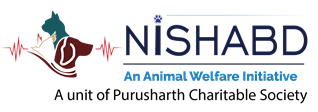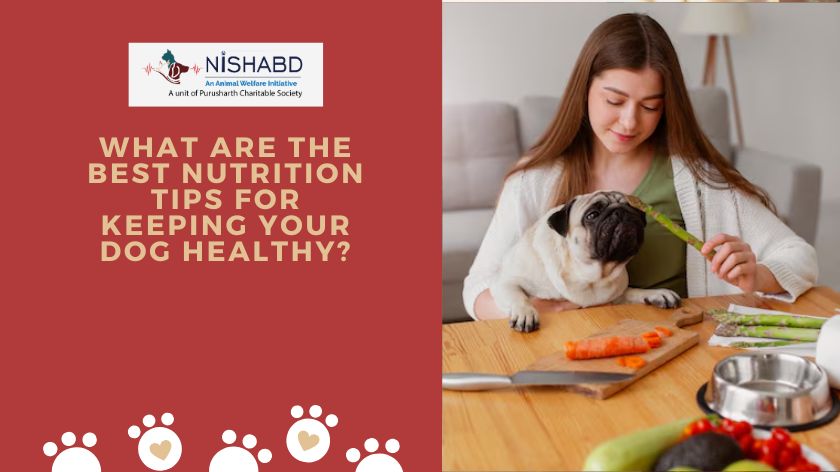What Are the Best Nutrition Tips for Keeping Your Dog Healthy?
As a pet owner, you might feel the urge to share meals with your furry companion. But, it’s important to realize the fact that not every human meal is suitable for dogs. Some are extremely dangerous and can even be deadly.
In this article, we will discuss the food items that your dog shouldn’t eat as well as discussing important information on nutrition for dogs, and the foods you need to feed your dog in order to keep them happy and healthy.
Healthy Foods to share with your Dog
Foods that are healthy to share with your dog will enhance their diet, and also provide vital nutrients.
- Apples are a delicious snack that is packed with vitamin A and C, which help promote healthy digestion and immune health.
- Bananas contain magnesium to aid in bone health, but must be eaten in moderation because of their sugar levels.
- Blueberries are a great source of antioxidants that aid in general health and help to reduce age-related problems.
- Carrots can be a healthy tooth-friendly treat that also contains vitamin A.
- Unsalted cashews can be an uncommon treat that provides calcium and protein.
- Cauliflower is high in calories and has a high amount of nutrients however, it can trigger gas, therefore small quantities are advised.
- Chicken and eggs that are cooked without seasoning are great protein sources particularly for dogs who have sensitive stomachs.
- Salmon and sardines provide omega-3 fatty acids that are essential for coat and skin health.
- Green beans are great for dogs who are overweight due to their low calorie content.
- Other options that are safe include pumpkin, peanuts and plain yogurt. These provide numerous health benefits, without harmful additives. By incorporating these foods with quality dog food will result in healthy, balanced food and keep your pet healthy and content.
Foods That Are Toxic to Dogs
1. Alcohol
Alcohol is among the most dangerous substances that dogs can consume. Even small amounts of it can cause poisoning, vomiting, unsteady moves, and low energy. It is essential to keep your beverages away from your pet’s reach and to store household items such as mouthwash safely.
2. Avocados
Although avocados are a healthy option in the human diet, they are also a source of persin, a toxin that could be harmful to dogs. Signs of poisoning from avocados include diarrhea and vomiting. Always be cautious about letting your dog near guacamole or avocado pits.
3. Bones
Although it may seem normal to feed your pet an animal bone, cooked bones could cause splinters and can lead to the dog to choke or suffer serious injuries. Raw bones could also present risk, and it’s recommended to stay clear of them.
4. Bread Dough
The yeast dough could release gas within your dog’s stomach which could cause a twist or ruptured abdomen. In addition, the dough that is rising generates alcohol, which can be poisonous for dogs. If your dog is consuming bread dough, look out for symptoms such as a belly that is swollen and abdominal discomfort.
5. Caffeinated Drinks
Caffeine can be harmful for dogs and can be present in tea, coffee, sodas and energy drinks. Signs of caffeine poisoning include muscle tremors, hyperactivity and panting. Keep these drinks away from the reach of your dog.
- Chocolate
Chocolate is a known risk for dogs because of it being a source of both theobromine as well as caffeine. Dark chocolate is especially harmful and even a small amount can cause death. If your dog consumes chocolate, symptoms may include vomiting, diarrhea, and even seizures.
7. Garlic and Onions
Both onions and garlic contain substances that could harm the red blood cells of your dog. Even tiny amounts of garlic and onions could be harmful, which is why it is important to stay clear of sharing these food items with your pet.
8. Grapes and Raisins
Grapes and raisins can trigger the kidneys to fail in pets, although the exact cause is unidentified. The symptoms usually begin with vomiting. The first symptoms of kidney failure are more thirst and increased need to urinate.
9. Macadamia Nuts
Macadamia nuts can lead to weakness, vomiting, and tremors in dogs. Keep all nuts away from your pets to avoid potential poisoning.
10. Xylitol
The sugar substitute Xylitol used in many sugar-free items is extremely poisonous for dogs. It could trigger insulin spikes, which can cause rapid drops in blood sugar levels and could cause liver damage. If ingested, dogs may show symptoms like vomiting, weakness, and seizures.
Dog Nutrition Tips: What to Feed Your Dog
While it’s important to avoid harmful foods, providing proper nutrition is equally important for your dog’s health. Here are some dog nutrition tips to ensure your furry friend gets the right diet:
1. Choose Quality Dog Food
Make sure you purchase a high-quality dog food that meets nutritional guidelines established by pet health organizations. Find products that include meat as the main ingredient and do not contain artificial ingredients.
2. Balanced Diet
Be sure to ensure that your dog’s diet has an appropriate balance of protein, carbohydrate, and fats. Commercial dog food is made to meet these needs. However, if you decide to go for homemade food, speak with a veterinarian to ensure that the diet is balanced.
3. Portion Control
Overfeeding can cause obesity and other health problems. Follow the feeding guidelines given on the packaging of dog food or by your vet to determine the proper portion size for your dog.
4. Fresh Water
Always make sure your dog has access to fresh water. Hydration is essential for your pet’s overall health, particularly when you feed them dry food.
5. Treats in Moderation
Although treats are a wonderful method of rewarding the dog you love, it must be used in moderate amounts. Pick healthy snacks or smaller portions of vegetables and fruits that are suitable for dogs, such as apple slices or carrots (without seeds).
Conclusion
Being aware of the foods your dog shouldn’t consume is essential for their health and well-being. By following these dog nutrition tips and offering safe, nutritious foods, you can ensure your pet lives a long and happy life.
Always consult with your veterinarian should you have any concerns about your dog’s diet or they eat dangerous food items. If you give them the proper treatment and care your pet will flourish!

